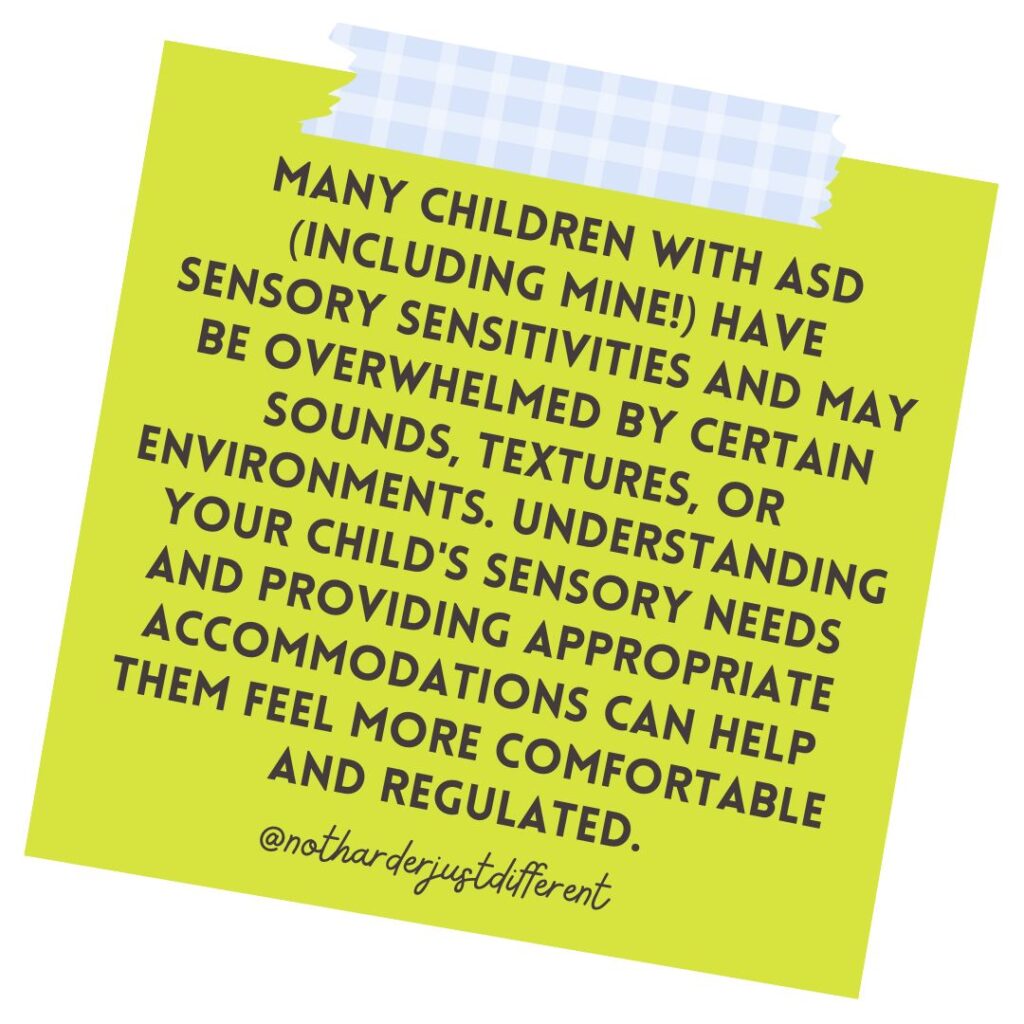Disclaimer: As a future Licensed Clinical Social Worker (LCSW) currently pursuing my master’s degree, I am passionate about sharing insights and information related to parenting, autism and homeschooling based on my personal experiences and research. However, the content shared on this blog is not intended to substitute professional advice, diagnosis, or treatment. Parenting is a deeply personal journey, and while I strive to provide valuable insights, every family and situation is unique. Readers are encouraged to consult with qualified professionals for personalized guidance tailored to their specific needs and circumstances.
Empower yourself with practical Autism Spectrum Disorder tips for parents. Learn how to create supportive environments and advocate for your child’s needs.
First off, I want to start off by reminding you that you’re doing an incredible job. Parenting is tough, and adding an autism diagnosis to the mix can feel like a whole new world of challenges. But guess what? You’ve got this, and you’re not alone. Together, we’ll navigate these waters and find ways to support your kiddo in the best possible way.
Raising a child with autism isn’t always easy, but trust me, there’s so much we can do to support our kiddos and help them thrive. These tips are like little nuggets of wisdom, gathered from parents who’ve walked this path before us. So, let’s roll up our sleeves and dive in together. We’ve got this!
10 Essential Autism Spectrum Disorder (ASD) Tips
Prioritize Clear Communication
Effective communication is essential for building strong connections and fostering positive relationships with your child. Children with ASD may experience challenges in expressing themselves and understanding social cues, so it’s important to create a supportive and communicative environment at home.
- Use clear, simple language and visual supports to help your child understand and communicate their thoughts and feelings.
- Be patient and attentive, and listen to your child’s words, gestures, and emotions with empathy and understanding.
- Encourage your child to express themselves in ways that feel comfortable and natural to them, whether through words, gestures, or alternative communication methods.
Create Predictable Routines
Children with ASD thrive in structured and predictable environments that provide clear routines, expectations, and boundaries. Establishing consistent daily routines can help your child feel safe, secure, and empowered to explore and learn.
- Create daily schedules and routines that provide consistency and predictability for your child.
- Use visual supports, such as visual schedules, timers, and checklists, to help your child understand and navigate their daily activities.
- Be flexible and adaptable, but try to maintain consistency in your child’s routines to provide a sense of stability and security.
Foster Independence and Self-Advocacy
Empowering your child to develop independence and self-advocacy skills is essential for promoting their growth and autonomy. Encourage your child to take initiative, make choices, and solve problems independently, while providing support and guidance as needed.
- Offer opportunities for your child to practice daily living skills, such as dressing themselves, preparing meals, and completing household chores.
- Break tasks down into manageable steps and provide visual supports and prompts to help your child navigate each step of the process.
- Celebrate their efforts and accomplishments, and encourage them to persevere in the face of challenges.
Promote Social Skills Development
Social skills development is an important aspect of your child’s overall growth and well-being. Children with ASD may struggle with understanding social cues and forming meaningful relationships, so it’s important to provide opportunities for them to practice and develop these skills.
- Encourage your child to engage in social activities and interact with peers in structured and supportive environments.
- Teach your child about social norms and expectations, such as taking turns, sharing, and respecting personal space.
- Use role-playing and modeling techniques to help your child learn and practice social skills in different social situations.

Understand Sensory Sensitivities
Many children with ASD (including mine!) have sensory sensitivities and may be overwhelmed by certain sounds, textures, or environments. Understanding your child’s sensory needs and providing appropriate accommodations can help them feel more comfortable and regulated.
- Identify your child’s sensory triggers and provide strategies to help them cope with sensory overload.
- Create sensory-friendly environments at home and in other settings by minimizing noise, clutter, and visual distractions.
- Offer sensory tools and resources, such as noise-canceling headphones, weighted blankets, and fidget toys, to help your child regulate their sensory input and manage stress.
Advocate for Your Child’s Needs
As a parent, you are your child’s best advocate, and it’s important to speak up and advocate for their needs in various settings, including school, healthcare, and community settings.
- Educate yourself about your child’s rights and entitlements under the law, including special education laws and disability rights.
- Collaborate with teachers, therapists, and other professionals to develop individualized support plans that meet your child’s unique needs and strengths.
- Be proactive in communicating with school personnel, attending meetings, and monitoring your child’s progress to ensure they receive the support and accommodations they need to succeed.
Seek Support and Resources
Navigating the challenges of ASD can feel overwhelming at times, but remember, you’re not alone on this journey. There are many resources and support networks available to help you connect with other parents, access information, and find support.
- Reach out to local autism organizations, support groups, and online forums to connect with other parents and caregivers who can offer empathy, encouragement, and practical advice.
- Explore educational resources, books, and websites dedicated to autism awareness and advocacy to stay informed about the latest research, therapies, and interventions.
- Don’t hesitate to seek professional support and guidance from therapists, counselors, and other professionals who specialize in working with children with ASD.
Practice Self-Care
Parenting a child with ASD can be emotionally and physically demanding, so it’s important to prioritize self-care and well-being. Taking care of yourself allows you to be the best possible advocate and support system for your child.
- Make time for activities and hobbies that bring you joy and relaxation, whether it’s exercising, reading, spending time with loved ones, or pursuing creative interests.
- Set realistic expectations for yourself and acknowledge that it’s okay to ask for help and take breaks when needed.
- Practice mindfulness and stress-reduction techniques, such as deep breathing, meditation, and yoga, to help manage stress and promote emotional well-being.
Celebrate Your Child’s Achievements
Every milestone and accomplishment, no matter how small, is a cause for celebration. Take the time to recognize and celebrate your child’s progress and achievements, and acknowledge the hard work and dedication it took to get there.
- Keep a journal or log of your child’s achievements, whether it’s mastering a new skill, overcoming a challenge, or reaching a milestone.
- Celebrate successes together as a family and praise your child for their efforts and perseverance.
- Focus on the positive and highlight your child’s strengths and abilities, building their confidence and self-esteem along the way.
Stay Positive and Hopeful
Parenting a child with ASD is a journey filled with ups and downs, but it’s important to stay positive, hopeful, and resilient in the face of challenges. Believe in your child’s potential and trust that with love, patience, and support, they can achieve great things.
- Focus on the strengths and abilities that make your child unique, and celebrate the progress and growth they make along the way.
- Surround yourself with positivity and optimism, and seek out sources of inspiration and encouragement to keep you motivated and uplifted.
- Remember that every challenge is an opportunity for growth and learning, and that your unwavering love and support can make a world of difference in your child’s life.
Remember, you are not alone on this journey, and there are many resources and support networks available to help you along the way. By prioritizing clear communication, creating predictable routines, fostering independence and self-advocacy, promoting social skills development, understanding sensory sensitivities, advocating for your child’s needs, seeking support and resources, practicing self-care, celebrating your child’s achievements, and staying positive and hopeful, you can create a nurturing and supportive environment where your child can thrive and reach their full potential.
Keep these essential tips in mind as you navigate the joys and challenges of parenting a child with ASD, and remember that every step you take to support and empower your child makes a positive difference in their life. Together, we can create a brighter and more inclusive future for children with ASD, one tip at a time.



One response to “Top 10 Essential Autism Spectrum Disorder Tips Every Parent Should Know”
[…] Top 10 Essential Autism Spectrum Disorder Tips Every Parent Should Know […]